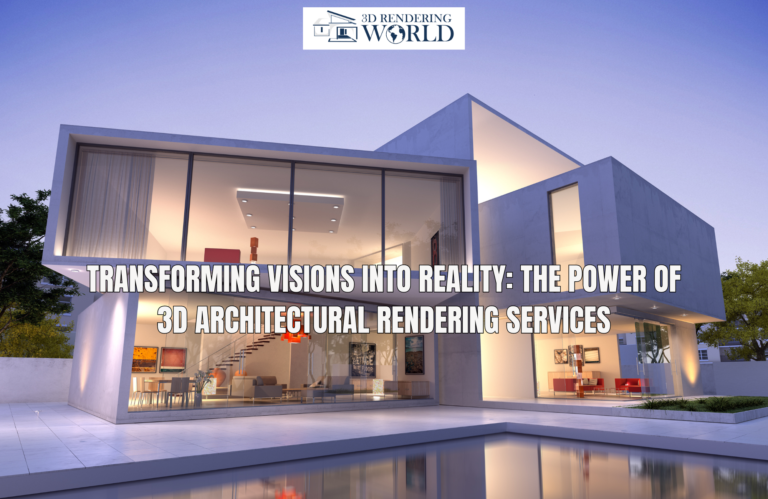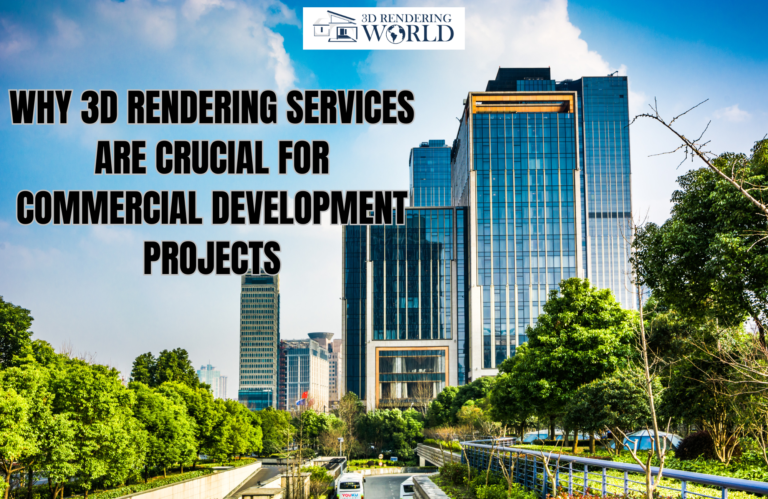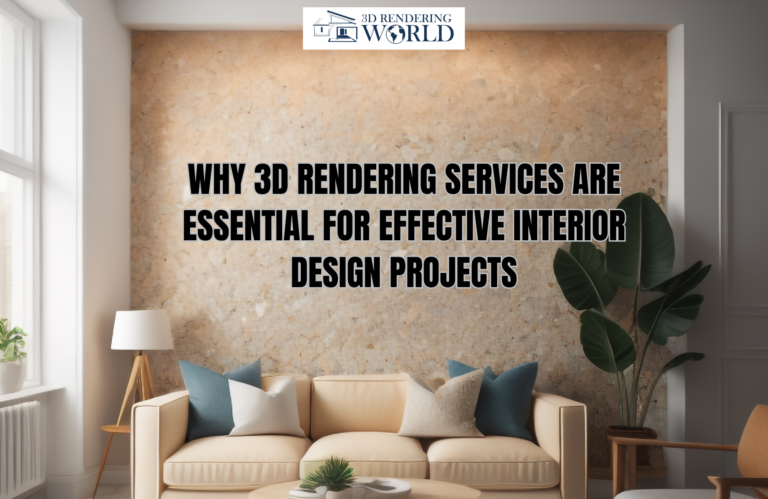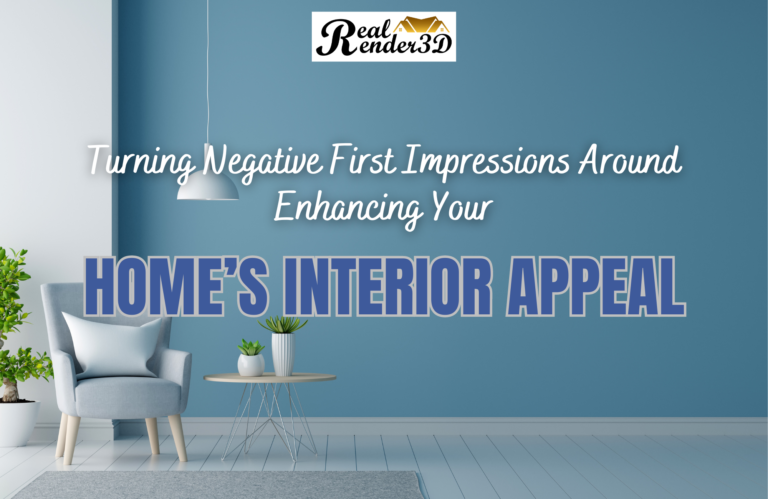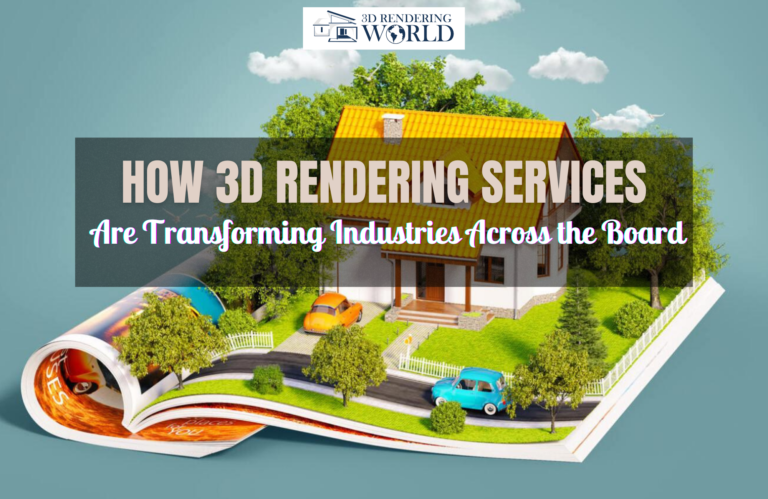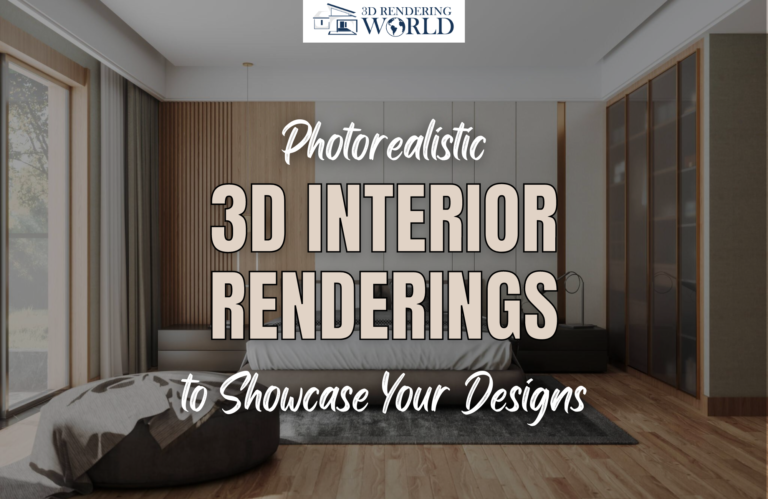Introduction

In the world of architecture, design, and real estate, 3D rendering has become an invaluable tool for visualizing concepts and bringing ideas to life. From stunning 3D interior renderings to photorealistic 3D exterior renderings, these services have transformed the way we communicate and present designs. However, not all 3D rendering services are created equal, and choosing the right provider can make a significant difference in the quality of your final product. In this blog post, we’ll explore what to look for when comparing 3D rendering services to ensure you get the best possible results.
1. Expertise and Portfolio
The first and foremost factor to consider is the expertise and portfolio of the 3D rendering services provider. Look for a company with a proven track record in the industry and a diverse portfolio showcasing their skills in various areas, such as 3D architectural visualization, 3D residential rendering, and 3D home design. An experienced provider will not only have a deep understanding of the rendering process but also the ability to translate your vision into stunning visuals.
2. Technical Capabilities and Software Proficiency

The quality of the final renders heavily relies on the technical capabilities and software proficiency of the rendering service. Ensure that the provider you choose is well-versed in the latest rendering software and techniques, such as photorealistic rendering, global illumination, and material mapping. They should also have access to powerful workstations and render farms to ensure efficient and timely delivery of your project.
3. Attention to Detail and Realism

When it comes to 3D rendering, attention to detail is paramount. A quality provider should be able to capture even the smallest nuances of your design, from the textures and materials used to the lighting conditions and atmospheric effects. They should also be able to accurately depict complex architectural elements, such as intricate facades, interior details, and landscaping features, ensuring a high level of realism in the final renders.
4. Communication and Collaboration
Effective communication and collaboration are essential for a successful 3D rendering project. Look for a provider who values open communication and is willing to work closely with you to understand your vision and requirements. They should be responsive to your feedback and make necessary adjustments to ensure that the final renders meet your expectations.
5. Turnaround Time and Responsiveness

In many cases, time is of the essence when it comes to 3D rendering projects. A quality provider should be able to deliver high-quality renders within your desired timeframe. Inquire about their turnaround times and ensure that they can meet your project deadlines without compromising on quality. Additionally, their responsiveness to your inquiries and requests will be an indicator of their professionalism and commitment to customer satisfaction.
6. Pricing and Value
While cost should not be the sole determining factor when choosing a 3D rendering services provider, it is still an important consideration. Look for a provider that offers transparent pricing and clearly outlines the scope of their services. Avoid providers that offer unrealistically low prices, as this may be an indication of subpar quality or hidden fees. Instead, focus on finding a provider that offers value for your investment, delivering high-quality renders at a fair price.
7. Versatility and Additional Services

In addition to rendering, consider the versatility of the provider and the additional services they offer. Some providers may specialize in specific areas, such as 3D architectural visualization, while others may offer a broader range of services, including 3D floor plans, rendered floor plans, CGI architecture, and CGI property visualizations. Depending on your needs, a provider with a diverse range of services may be more beneficial, allowing you to streamline your workflow and ensure consistent quality across all aspects of your project.
8. Client Testimonials and References

Finally, don’t underestimate the value of client testimonials and references. Positive reviews and recommendations from previous clients can provide valuable insights into the provider’s professionalism, customer service, and overall satisfaction with their work. Additionally, references can give you an opportunity to speak directly with past clients and get firsthand accounts of their experiences with the rendering service.
Conclusion
Choosing the right 3D rendering services provider is a critical decision that can significantly impact the success of your project. By considering factors such as expertise, technical capabilities, attention to detail, communication, turnaround time, pricing, versatility, and client testimonials, you can make an informed decision and ensure a successful collaboration with a provider that truly understands and meets your needs. Remember, investing in a quality 3D rendering service can ultimately save you time, money, and frustration in the long run, while delivering stunning visuals that accurately represent your design concepts.
Frequently Asked Questions
3D rendering is the process of generating a 2D image from a 3D model using specialized software. 3D modeling involves creating the 3D representation of an object or scene from scratch.
The timeline can vary greatly depending on the complexity of the project, but most quality renderings take anywhere from a few days to a couple of weeks.
Common file formats for 3D rendering include .max, .obj, .fbx, and .skp. Final renders are usually delivered as high-resolution image files like .jpg, .png, or .tiff.
Many 3D rendering services offer animation capabilities in addition to still image rendering. Animations are useful for walkthroughs, product demos, and architectural flyovers.
Extremely important. High-end workstations and render farms with powerful GPUs and CPUs are necessary to calculate complex lighting, textures, and effects in a reasonable timeframe.
Popular rendering software includes 3ds Max, V-Ray, Corona Renderer, Lumion, Enscape, Twinmotion, and Blender among others.
Yes, professional 3D rendering studios have the expertise and resources to take on extensive architectural visualization projects of any size or complexity.



